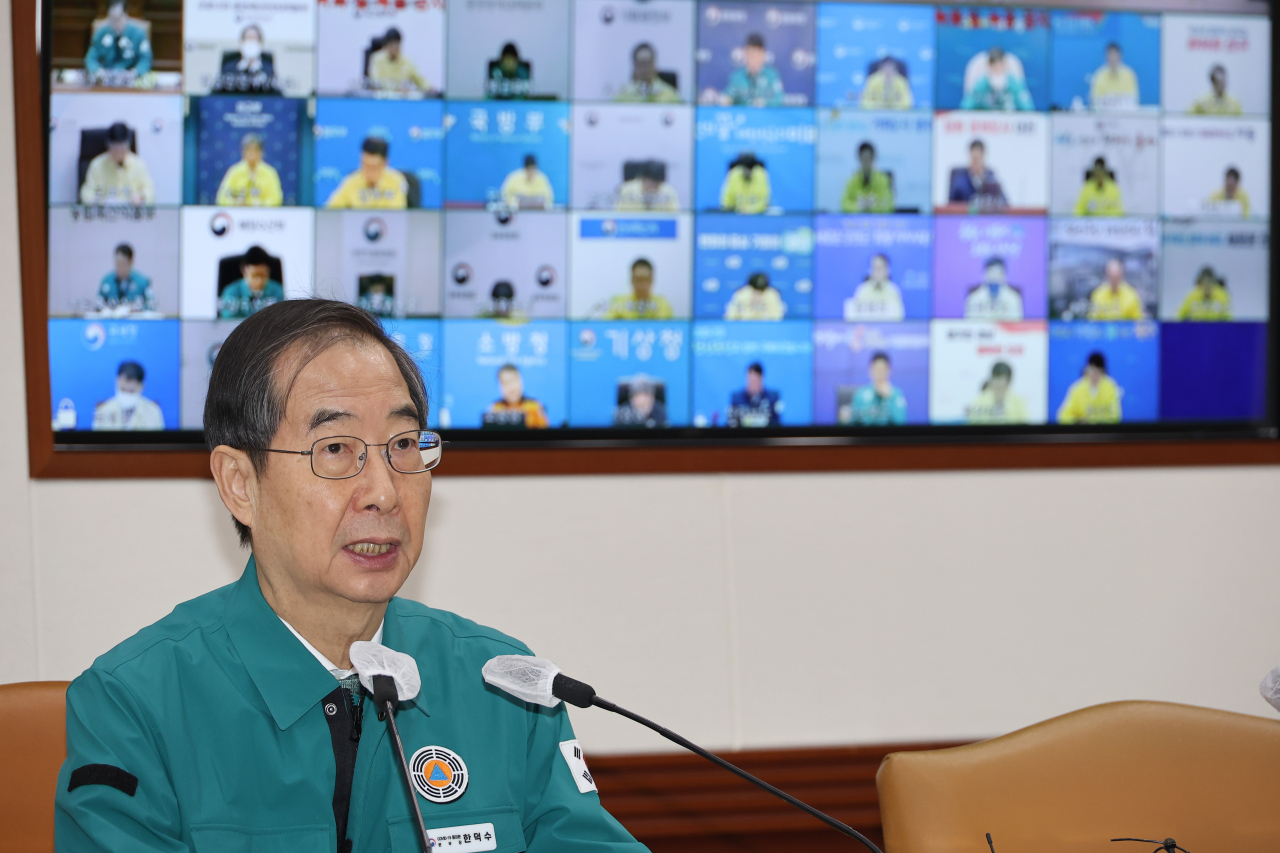S. Korea-China weekly flights set to rise by end of month: PM
Quarantine measures likely to be eased following tempered COVID-19 restrictions and visa tensions
By Lee Jung-younPublished : Feb. 17, 2023 - 14:28

The number of international flights between South Korea and China, currently 62 per week, will be increased to 100 per week next month. The decision to drop other quarantine measures, including mandatory PCR tests for entrants travelling from China, will be announced next week.
"We will gradually increase the number of international flights between Korea and China to 80 per week by the end of this month, and to 100 per week next month," said Prime Minister Han Duck-soo at a COVID-19 response meeting held at the Government Complex Seoul, Friday.
The tensions between Korea and China over visa issuance is also set to ease as the COVID-19 situation stabilizes. On Feb. 11, Seoul lifted visa restrictions on Chinese nationals travelling to Korea. In response, the Chinese government has decided to lift short-term visa restrictions for Koreans travelling to China starting from Saturday.
Travelers from China are still required to take PCR tests before and after entering Korea until Feb. 28, and can only enter the country through Incheon International Airport. The government will decide next week whether to extend or terminate the remaining restrictions.
"If domestic and foreign COVID-19 stability continues, the government will begin discussions over lifting remaining quarantine regulations, including downgrading the disease category of the virus,” Han said.
Meanwhile, a survey conducted by the Seoul National University Graduate School of Public Health and Kstat Research showed that 7 out of 10 Koreans think that the lifting of the indoor mask mandate was a valid decision.
The research team conducted a survey from Feb. 7 to 10, asking 1,000 adult men and women nationwide their opinions regarding the indoor mask mandate.
More than half of the respondents, 69.1 percent, said it was a reasonable decision to adjust the indoor mask regulation from obligation to recommendation. Only 25.4 percent of the respondents said the adjustment was not reasonable. Of the respondents who said lifting indoor mask mandate was not valid, 53.5 percent said it was due to "anxiety or uncertainty about the impact of the lifting of the obligation."
Restaurants and cafes accounted for 39.3 percent of the places where masks were worn the least after the lifting of the indoor mask mandate. Sports facilities followed by 34.7 percent.
By age, it was found that people in their 20s and 30s are not wearing masks more compared to other age groups. Those who had been tested positive for COVID-19 before are also not wearing masks compared to those who have never tested positive.
When asked how long they plan to continue wearing indoor masks in the future, 36 percent of the respondents said "less than half a year." 30.5 percent of the respondents said "more than half a year," and 19.6 percent said "about half a year."





![[Graphic News] Number of coffee franchises in S. Korea rises 13%](http://res.heraldm.com/phpwas/restmb_idxmake.php?idx=644&simg=/content/image/2024/05/02/20240502050817_0.gif&u=)


![[Robert J. Fouser] AI changes rationale for learning languages](http://res.heraldm.com/phpwas/restmb_idxmake.php?idx=644&simg=/content/image/2024/05/02/20240502050811_0.jpg&u=)









![[Eye Interview] 'If you live to 100, you might as well be happy,' says 88-year-old bestselling essayist](http://res.heraldm.com/phpwas/restmb_idxmake.php?idx=652&simg=/content/image/2024/05/03/20240503050674_0.jpg&u=)
